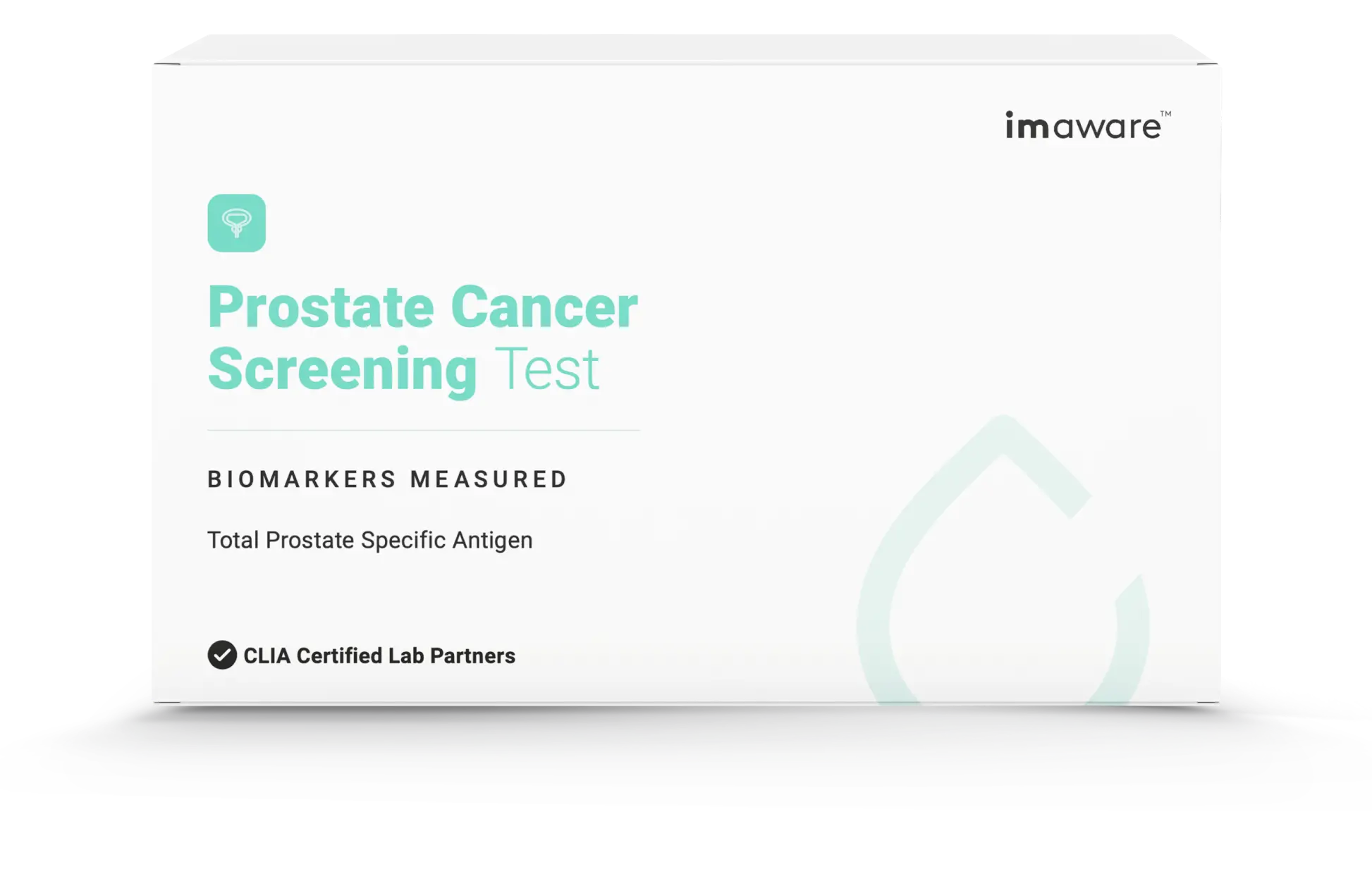What is prostate-specific antigen?
Prostate-specific antigen (PSA) is a protein made in the prostate. PSA levels are often elevated in the blood of men with prostate cancer. The PSA test can also identify non-cancerous conditions, such as prostatitis (prostate inflammation) and benign prostatic hyperplasia (overgrowth of the prostate).
When should I test for prostate-specific antigen?
The PSA blood test is often used by healthcare professionals as an initial screen for prostate-related conditions in men over the age of 50, though earlier testing may be advisable for men in high-risk groups such as those with a family history of prostate cancer¹. A PSA test may help detect prostate cancer early in men without any symptoms of the disease, find cancer in those who do have symptoms, and be used to monitor the effectiveness of prostate cancer treatments¹.
While it used to be recommended to men over age 50 to test their PSA yearly, some organizations warn against routine testing due to the need to balance the benefits and risks of screening for prostate cancer². Most organizations recommend discussing the PSA test with your healthcare professional before proceeding.
What is a normal prostate-specific antigen level?
While there is no normal PSA level, generally, the higher the level, the greater the risk a man has prostate cancer². Most healthcare professionals used to consider a PSA level of 4 ng/mL or lower as normal, though further studies showed some men with PSA levels less than 4 ng/mL can develop prostate cancer³.
What does a high prostate-specific antigen level mean?
An elevated PSA level may warrant follow-up tests, such as a digital rectal exam or urine test, to learn more about the cause. If a healthcare professional suspects prostate cancer, they may recommend additional tests and a prostate biopsy. Elevated levels of PSA can also be caused by an enlarged prostate, exercise, and sexual activity.

References
- Canadian Cancer Society. Prostate-specific antigen (PSA) test. 2 July 2021. https://www.cancer.ca/en/cancer-information/diagnosis-and-treatment/tests-and-procedures/prostate-specific-antigen-psa/?region=on
- National Cancer Institute. Prostate-specific antigen (PSA) test. 2 July 2021. https://www.cancer.gov/types/prostate/psa-fact-sheet
- Thompson IM, et al. Prevalence of prostate cancer among men with a prostate-specific antigen level < or =4.0 ng per milliliter. N Engl J Med 2004;350(22):2239-46.

